Table of Contents
First Amendment News 287: Bring back the fairness doctrine? Destroying the internet in order to save it.
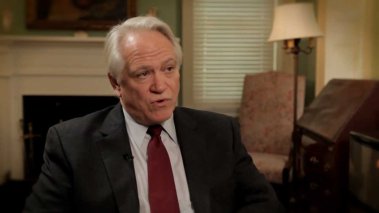
Robert Corn-Revere
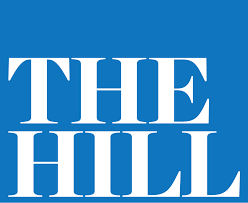
Robert Corn-Revere, a First Amendment media lawyer, disagrees. In what follows, he replies to Chemerinsky and Krishnamurthy. Next week's issue of FAN will include a rejoinder to Mr. Corn-Revere's reply.
By Robert Corn-Revere
In a recent opinion piece, two highly respected scholars at the Berkeley School of Law, Erwin Chemerinsky and Prasad Krishnamurthy, offer a modest proposal to prevent “unaccountable technology monopolies serving as the nation’s speech police.” They point to the long-defunct fairness doctrine, which purported to require broadcast stations to cover controversial issues of public importance in their communities and to do so with “balance,” and suggest Congress could pass a law forbidding “designated social media platforms from discriminating against users and content on the basis of their political views.”
With all due respect to Dean Chemerinsky and Professor Krishnamurthy, it is hard to imagine a proposal that would more thoroughly break the internet. Their proposal ignores the sad history of failure and abuse that led even the Federal Communications Commission (“FCC”) to abandon the fairness doctrine as unworkable and unconstitutional; it rests on an unsound constitutional premise that already has been rejected by the Supreme Court; and it would empower a federal bureaucracy to become the nation’s speech police for “designated social media platforms” (but apparently not for others). The proposed cure is far worse than the disease.
On its face, the fairness doctrine sounds like nothing more than a statement of sound journalistic principles — covering controversial issues of public importance in a balanced way. But it is one thing to strive for such objectives as a matter of private editorial judgment, and another thing entirely to try to impose rules by bureaucratic fiat. For that reason, the fairness doctrine never functioned as advertised and inevitably fostered political abuse.
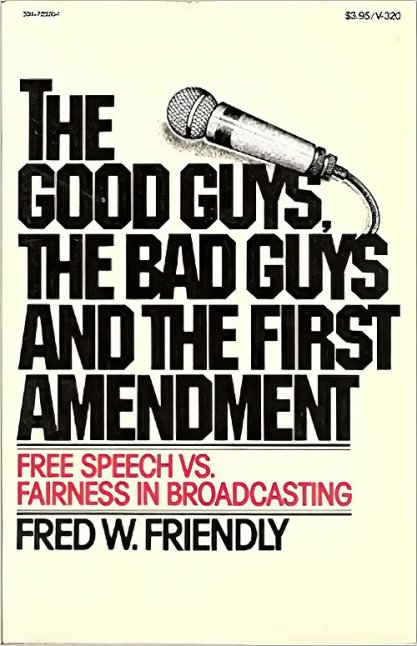
Partisan politics
Legendary newsman Fred Friendly (who with Edward R. Murrow helped expose Senator Joseph McCarthy as a fraud and a bully) documented this unfortunate history in his 1975 book, "The Good Guys, the Bad Guys, and the First Amendment." He revealed that in the 1960s, President Kennedy approved a plan to coordinate fairness doctrine complaints to target radio stations that aired right-wing editorials and to focus on small-market stations that could not afford to respond. Supported by a secret fund handled by the Democratic National Committee (“DNC”), a monitoring program was established to demand response time for any commentary considered to be “irrationally hostile to the President and his programs.”
The avowed purpose was to “harass right-wing broadcasters and hope the challenges would be so costly to them that they would be inhibited and decide it was too costly to continue.” A confidential report to the DNC stressed that the principal targets were “small rural stations . . . in desperate need of broadcast revenues” and that a continuing effort would force stations to drop certain programs from their broadcast schedule. (Source: here.)
Such official abuse of broadcast regulations was not limited to one side of the political spectrum. Richard Nixon’s White House taping system recorded the President threatening to take action against broadcast stations owned by The Washington Post in retaliation for its coverage of the scandal, and he arranged for political allies to challenge license renewals of “unfriendly” broadcast stations. (Judge David L. Bazelon, "FCC Regulation of the Telecommunications Press," Duke L. J. 213, 214, 216 & n.9, 239 (1975)). Internal White House memoranda written by Nixon’s Special Counsel Charles Colson described meetings with the chief executives of the three major broadcast networks to threaten enforcement of FCC regulations to achieve “an inhibiting impact on the networks and their professed concern with achieving balance.” (Source: here)
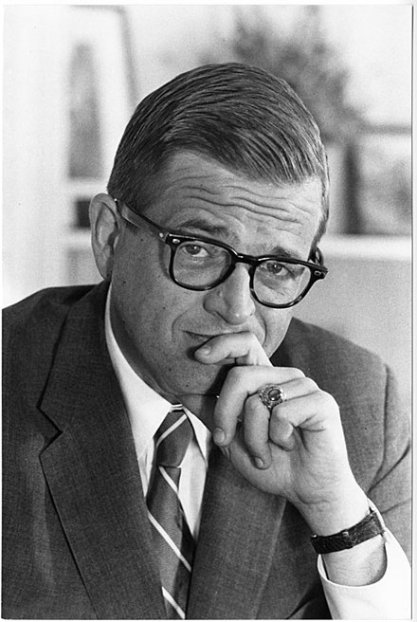
Colson set forth a plan that included establishing “an official monitoring system through the FCC” and to “make official complaints” to the Commission. He partnered with right-wing media “watchdog” groups to bring fairness complaints against programs like the CBS documentary "The Selling of the Pentagon" because it criticized U.S. policies in Vietnam, as well as complaints against programs on PBS. This plan also generated a fairness doctrine complaint against NBC for a documentary criticizing private pension plans entitled "Pensions: The Broken Promise." As one Nixon aide put it, working through such groups was perfect because it was “a mechanism under which private non-governmental pressures can be brought to bear.”
Various groups on the political right actively pursued fairness complaints against network-owned stations over the years. Even the CIA got in on the act, filing fairness doctrine complaints against ABC and its affiliates for a World News Tonight story about an alleged plot to assassinate a former agent. Conservative groups supported the CIA’s complaint and filed their own complaints against CBS for the documentary "The Uncounted Enemy: A Vietnam Deception" and for an episode of a news special called "Pentagon Underground."
The Reagan Administration’s FCC finally eliminated the fairness doctrine as part of a wave of deregulatory actions in the 1980s. After an exhaustive review of the fairness doctrine in operation, the FCC concluded the policy “actually inhibits the presentation of controversial issues of public importance to the detriment of the public and in degradation of the editorial prerogative of broadcast journalists.”
Supreme Court cases
The constitutional basis for imposing a fairness doctrine on (selected) internet platforms also comes up short. Professor Krishnamurthy and Dean Chemerinsky point to Red Lion Broadcasting Co. v. FCC, the 1969 Supreme Court decision that upheld the fairness doctrine based on a theory of spectrum scarcity, and Turner Broadcasting System v. FCC, the 1997 decision that upheld “must carry” rules, which required cable operators to carry local broadcast stations. They argue that these decisions would support imposing a “nondiscrimination doctrine” on technology platforms. Under such a doctrine, they claim online platforms “would still be free to remove unprotected speech such as libel, slander, threats and the intentional dissemination of untruth,” or “posts that do not conform to their community standards of decency and mutual respect,” but they would “not be permitted to censor speech based on its political content.”
There are many reasons why neither Red Lion nor Turner Broadcasting System support a constitutional rule that would empower a federal agency to police content choices made by online platforms to prevent “political discrimination” — far too many to articulate here. But a short answer is that the Supreme Court already rejected an attempt to impose rules on the internet that were designed for broadcasting or cable. In Reno v. ACLU (1997), the Supreme Court invalidated the indecency prohibitions of the Communications Decency Act, and rejected the government’s reliance on broadcast and cable precedents, specifically distinguishing both Red Lion and Turner Broadcasting System. Noting the different characteristics of the internet, the Court observed that “our cases provide no basis for qualifying the level of First Amendment scrutiny that should be applied to this medium.”
Even if it were theoretically possible to craft a constitutional rule, it would be utterly impractical. No federal agency could police the torrents of complaints that inevitably would flow from a rule prohibiting political “discrimination” when online platforms remove inflammatory posts that violate their policies. The numbers alone would be overwhelming. But beyond that, the task of distinguishing posts that were removed because of political “discrimination,” as opposed to the acceptable reasons Dean Chemerinsky and Professor Krishnamurthy list (including libel, slander, threats, the intentional dissemination of untruth, or posts that fail to conform to community standards of decency and mutual respect) would be beyond daunting.
One thing is sure. Any such system would be an invitation for political abuse, and history confirms that is precisely how such a bureaucracy would operate. Are our memories really so short?
Robert Corn-Revere, a partner at Davis Wright Tremaine LLP, formerly served as Chief Counsel to Federal Communications Commission Chairman James H. Quello. This article is excerpted in part from his upcoming book, "The Mind of the Censor and the Eye of the Beholder – The First Amendment and the Censor’s Dilemma" (Cambridge University Press, forthcoming 2021). The views expressed herein are the author’s own and should not be attributed to his firm or to any client.
Laurence Ferlinghetti (1919-2021), American maverick
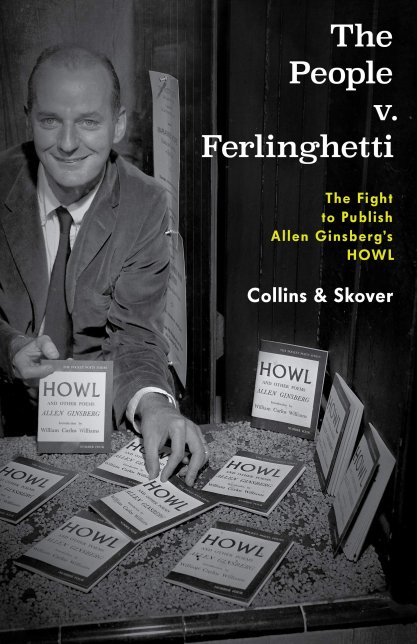
Laurence Ferlinghetti died yesterday. He was 101. The famed poet who left a proud and lasting legacy was an American maverick. Those two words portray much about the man who devoted decades to perfecting the art of freedom writ large.
As a poet, painter, playwright, social activist, environmentalist, bookseller, and book publisher, he charted his own life course with creative imagination and pragmatic conviction . . . and so too the lives of many great writers including Allen Ginsburg, Jack Kerouac, Gregory Corso, Pier Paolo Pasolini, Andrei Voznesensky, Jacques Prévert, and Frank O’Hara, among others. And true to form, though he was one of the key figures of the “Beat Generation,” Ferlinghetti never saw himself as a “Beat.”
College man, Navy man, newspaperman, businessman, artistic man, and dissident man — it was all part of his DNA. His modus operandi: Quiet when many shouted, outspoken when most were silent. His words: “Poetry is the shadow cast by our streetlight imaginations.” There is yet more — his was a life cast large on a canvas unwilling to yield to the limits of its borders. That canvas included some 40 books he authored between 1955 and 2019.
Related
- Collins & Skover, "The People v. Ferlinghetti: The Fight to Publish Allen Ginsberg's Howl" (2019)
- People of the State of California v. Lawrence Ferlinghetti (1955 trial transcript)
Northern District of Illinois: Photo service Shutterfly settles facial scan case
The case is Vernita Miracle−Pond, et al. v. Shutterfly, Inc. (N. List., Il: case no. 1:19-cv-04722). When the case first appeared before the federal district court last May, the facts were summarized as follows:
Plaintiffs Vernita Miracle-Pond and Samantha Paraf have sued Defendant Shutterfly, Inc. under the Illinois Biometric Information Privacy Act (“BIPA”), 740 ILCS 14/1, et seq. Before the Court is Shutterfly’s motion to compel arbitration for Ms. Miracle-Pond1 and to stay the litigation pending the outcome of arbitration, and Plaintiffs’ motion for curative measures.. For the reasons stated below, Shutterfly’s motion is granted, and Plaintiffs’ motion is denied. Shutterfly’s motion to dismiss is stayed pending the outcome of arbitration.
Last week the following docket entry was made in the case:
MINUTE entry before the Honorable Mary M. Rowland: The court has reviewed the joint status report. The Parties have reached a settlement−in−principle that, if finally approved, will resolve all claims asserted in this action. The Parties intend to present their settlement for approval by the Circuit Court of Cook County, Illinois, County Department, Chancery Division, where this action was initially commenced (Miracle−Pond, et al. v. Shutterfly, Inc., Case No. 2019CH07050). In light of the stipulation to remand action to the Circuit Court of Cook County, this action shall be remanded to the Circuit Court of Cook County, Illinois, County Department, Chancery Division. Remand of this Action shall be without prejudice to Defendant's rights pursuant to 28 U.S.C. §§ 1441, 1446 and 1453. Each party to bear their own fees and costs. Defendant's motion to dismiss is denied as moot. Civil case terminated. Mailed notice.
Webinar later today: 'Covering Protests: Challenges for a New Era'
While journalists have a First Amendment right to record people protesting in public places, there are other ethical considerations that may influence their decisions when reporting on a demonstration. The rise of police surveillance technologies has led some photojournalists to wonder whether they should blur subjects’ faces to protect protestors’ identities. Activists have called on the media to pay closer attention to the language they use- to describe peaceful protestors compared to rioters. And media commentators have raised questions about the journalistic practice of telling both sides of an issue (both-siderism), when it’s evident that one side is misrepresenting the facts.
Join First Amendment Watch at New York University and the Center for Journalism Ethics at the University of Wisconsin-Madison in a conversation about how reporters, photographers, and editors should weigh their responsibility to report on public matters balanced against ethical concerns such as the privacy and safety of their subjects.
→ RSVP here.
2020-2021 SCOTUS term: Free expression & related cases
Cases decided
- Mckesson v. Doe (per curium, 7-1 with Thomas, J., dissenting) (judgment vacated and remanded to 5th Cir.)
Cases argued
- Facebook, Inc. v. Duguid (OA: Dec. 8, 2020) (Telephone Consumer Protection Act robocall case)
- Fulton v. City of Philadelphia (OA: Nov. 4, 2020) (religious expression: free exercise & free speech claims)
- Carney v. Adams (OA: Oct. 5, 2020) (standing/judicial elections)
Cert. granted
- Mahanoy Area School District v. B.L.
- Thomas More Law Center v. Becerra
- Americans for Prosperity Foundation v. Becerra
- Facebook, Inc. v. Duguid (OA: Dec. 8, 2020) (Telephone Consumer Protection Act robocall case)
- Carney v. Adams (OA: Oct. 5, 2020) (standing/judicial elections)
- Fulton v. City of Philadelphia (OA: Nov. 4, 2020) (religious expression: free exercise & free speech claims)
Pending petitions
- Hamilton v. Speight
- City of Austin, Texas v. Reagan National Advertising of Texas Inc.
- Houston Community College System v. Wilson
- Thompson v. DeWine
- Corn et al v. Mississippi Dept. of Public Safety (5th Cir. opinion)
- Trump v. Knight First Amendment Institute
- Stockman v. United States
- Institute for Free Speech v. Becerra
- Arlene’s Flowers Inc. v. Washington
Cert. denied
- Jack Daniel’s Properties Inc. v. VIP Products LLC
- Hurchalla v. Lake Point Phase
- Bruni v. City of Pittsburgh
- Hunt v. Board of Regents of the University of New Mexico
- Lieu v. Federal Election Commission
- City of Sacramento, California v. Mann
- Evans v. Sandy City, Utah
- Reisman v. Associated Faculties of the University of Maine
- Austin v. Illinois
- Living Essentials, LLC v. Washington
First Amendment-related
- Rentberry, Inc. v. City of Seattle
- Uzuegbunam & Bradford v. Preczewski, et al. (nominal damages and mootness in campus speech context) (cert. granted)
- National Association of Broadcasters v. Prometheus Radio Project (Re: Section 202(h) of the Telecommunications Act of 1996) (cert. granted)
- Federal Communications Commission v. Prometheus Radio Project (Re: FCC cross-ownership restrictions) (cert. granted)
- Retzlaff v. Van Dyke (state anti-SLAPP laws in federal diversity cases) (cert. denied)
Last scheduled FAN
Recent Articles
FIRE’s award-winning Newsdesk covers the free speech news you need to stay informed.

BREAKING: New Title IX regulations undermine campus free speech and due process rights


Stanford president and provost cheer free expression in open letter to incoming class

